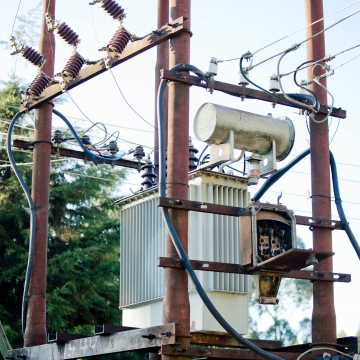
Urban authorities called to harness human waste for biogas and fertilizers
Environmental economists from Makerere University have called on urban authorities to harness the abundant human and organic waste in the cities to produce biogas and organic fertilizers. They argue…

Researchers and graduate students skilled in science communication.
Research fellows and graduate students taking environmental-related courses at Makerere University have been retooled on communicating research findings. The training was part of the EfD-Mak seminar…
The Economics of Energy Transitions: Concepts, Methods and Research for Policymaking
The training will be in a hybrid format, with virtual lectures offered this spring followed by an in-person intensive week at the University of Cape Town at the end of May 2024. The focus will be…

“The program really enhanced my knowledge”
Eden Seyoum is one of the participants from the first cohort of the Inclusive Green Economy in Practice program. Now, being part of the IGE alumni network, she reflects on her experiences from the…
Information and communication technology expenditures and household transport fuel market participation and consumption in Ghana
The paper looked at the effect of household outlay on information and communication technology (ICT) on market participation and consumption choices for transportation fuel, as well as the role that household location plays in determining how ICT affects both educated and uneducated households’ market participation and consumption choices. The double-hurdle model was applied to five rounds of secondary Ghana Living Standard Surveys (GLSS).
Corruption: Is it a bane to renewable energy consumption in Africa?
Increasingly, a significant part of the literature on corruption establishes a negative relationship between corruption and economic variables. However, empirical research showing the influence of corruption on renewable energy consumption is useful because of the global interest in achieving a low-carbon and clean environment.
Household exposure to the risk of cooking smoke: Evidence from Sub-Saharan Africa
In Sub-Saharan Africa, the place of cooking and choice of fuel for cooking have detrimental effects on health due to excessive exposure to smoke. This study explores household-level exposure to the risk of cooking smoke and its associated determinants.
Does remittance inflow influence energy poverty?
Energy poverty is a relevant issue in Africa, driven largely by income constraints. Eliminating or reducing this phenomenon could prove very vital in achieving the United Nations’ Sustainable Development Goal 7 as well as sustainable development and inclusive growth. Remittances remain an important means of income support in developing and emerging economies.
Pagination
- Previous page
- Page 13
- Next page
